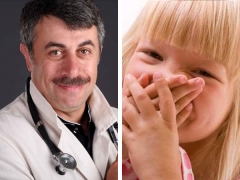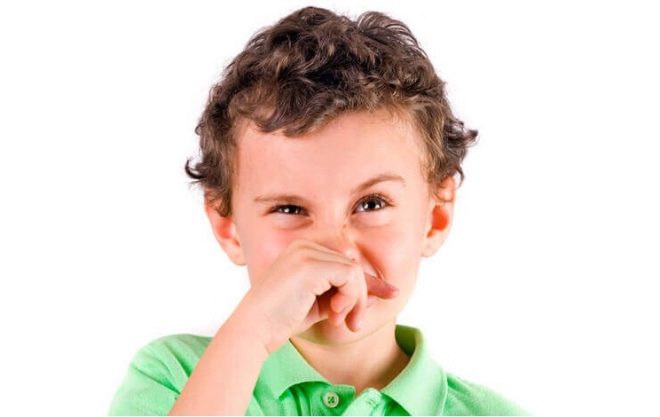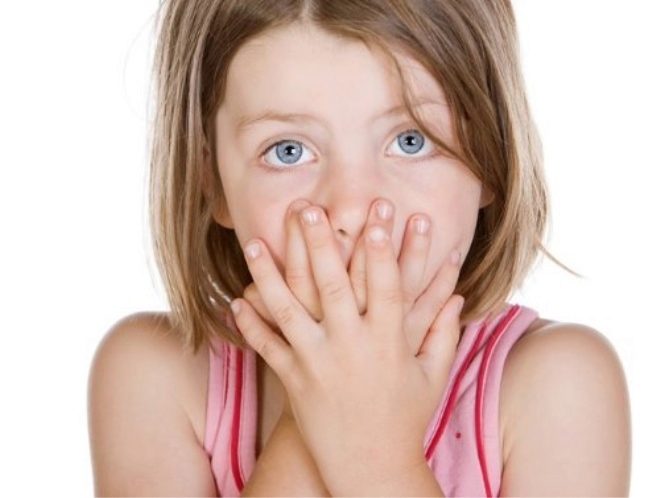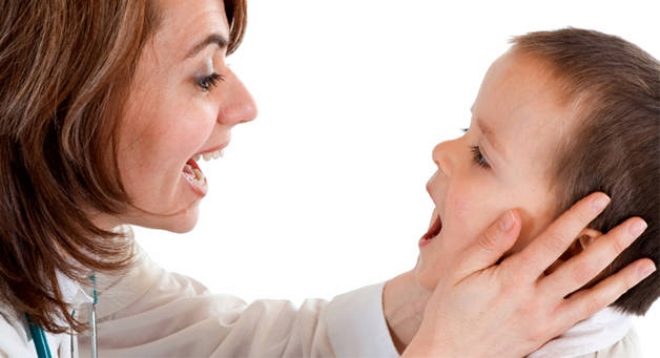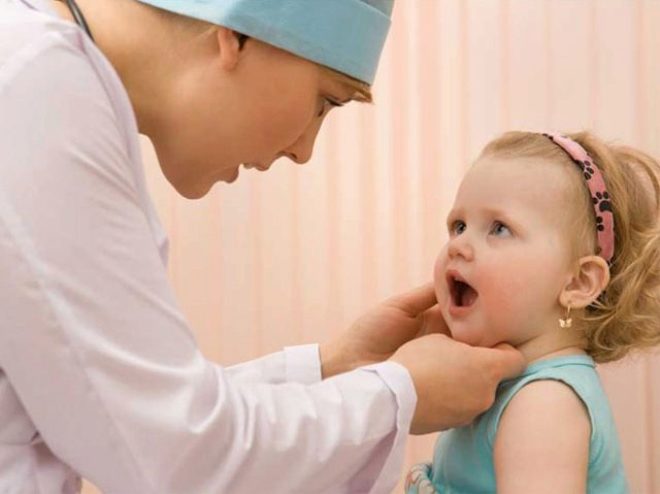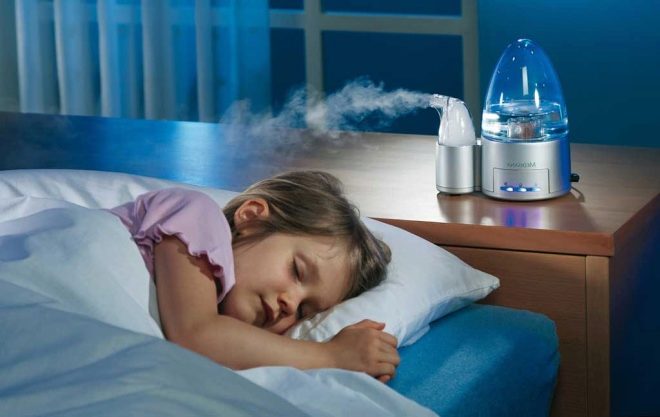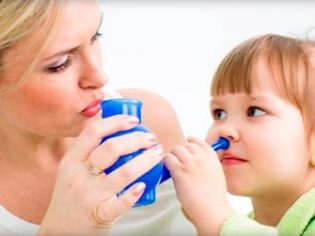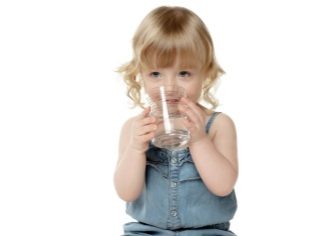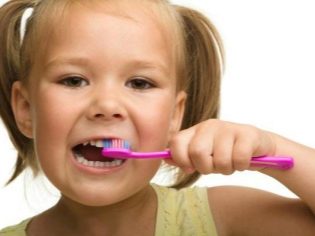Dr. Komarovsky about the smell from the mouth of a child
Children should smell like milk, candy and childhood. But sometimes parents notice that the child has an unpleasant smell from the mouth. This is most noticeable in the morning after sleep. At the same time, the baby is healthy, active, does not complain about anything, is not sick of anything. With questions about the reasons for such an unpleasant phenomenon, moms and dads turn to pediatricians, dentists, other parents, on the Internet, and, quite often, to authoritative doctor Yevgeny Komarovsky.
About the problem
Doctors - the people are accurate, they like to systematize and call everything. There is a "name" and a phenomenon such as bad breath - halitosis. Medical encyclopedias describe it as a symptom of some diseases of the stomach and intestines, as a sign of a violation of the microflora of the mouth. The term does not denote an independent disease, medicine considers offensive breath only as an external manifestation of certain internal problems.
Although bad breath was known to healers from time immemorial, it was decided to call it an independent name only in 1920, when it was very necessary to at least somehow identify the problem in order to make a successful advertising campaign with a means for rinsing the oral cavity. The tool, by the way, has been sold and is being sold quite successfully. And the name is just included in the directories.
Komarovsky about the problem and causes
The reasons for the appearance of an unpleasant scent from the child’s mouth may be different. But almost all of them ultimately boil down to the fact that the smell is a consequence of the multiplication of bacteria in the oral cavity. At the same time, microbes secrete special substances containing sulfur components. It is this substance and is responsible for the occurrence of a bad smell. Usually saliva has a detrimental effect on microbes; it literally paralyzes them and prevents them from multiplying. But if the properties of saliva, its composition is violated, the saliva itself is not enough, then the bacteria feel that they are "masters of the situation."
Lack of saliva or a change in its chemical composition leads not only to the appearance of an unpleasant odor, but also to the appearance of some bacterial infections - in the nose, in the larynx, in the bronchi and trachea, in the ears, for example. And it is quite natural, since the reproducing harmful microorganisms need a new living space, the oral cavity is not enough for them.
Officially, medicine calls the disease of the gastrointestinal tract one of the causes of bad breath, but Yevgeny Komarovsky is convinced that there is no such relationship at all. If only for the reason that the smell from the esophagus can not penetrate into the mouth through a special "valve" that closes the digestive organs.
But the food that the child took, can greatly affect the occurrence of odor. For example, if he ate garlic, grapes. Such a smell should not cause concern, as it passes by itself.
Bad breath can be a concomitant symptom of diseases of the nose, or rather the maxillary sinuses. Then the stench is due to the accumulation of pus in them. The same symptom accompanies and sore throatwhen bacterial inflammatory processes occur on the tonsils, in the larynx. Even with the usual small rhinitis, the child begins to breathe through his mouth, his saliva dries out, and the disease causing microbes receive a favorable breeding ground.
The main reasons for the appearance of an unpleasant odor Dr. Komarovsky will tell in the next video.
The most obvious cause of bad breath is dental problems.It is easiest to install, just examine the teeth carefully, and if beginning caries is noticeable, the gums swell, their redness, swelling, you should go to an appointment with a pediatric dentist. After removing the cause, the smell will disappear on the same day.
In addition, there are other reasons, which will help to establish experts - doctors at a personal reception.
Not the last role in the diagnosis plays the specifics of smell. For example, acetone smell may be a sign of acetonemic syndrome, diabetes, problems with the gall bladder. The sweet smell should alert the hardest, so often they are accompanied by serious liver disease, hepatitis, a strong depletion of the body.
The smell of ammonia from the mouth may indicate possible problems with the liver, metabolism, excess protein, which the child gets with food. And the smell of drugs is usually not dangerous, it quite naturally occurs when taking certain medication, such as vitamins or antibiotics.
Anyway, unpleasant bad breath in a child can not be ignored. The sooner you contact your pediatrician for a personal appointment, the sooner he will establish the cause and help you choose the treatment tactics. The disadvantage of modern public health is that doctors, unfortunately, determine the nature and intensity of breath from the mouth by experience, sniffing on their own. For accurate diagnosis, you need a special device that determines the amount of sulfur in the exhaled air.
But the tests of feces, blood and urine that are loved by our pediatricians, which prescribe that all children complain about bad breath, are completely useless. This ritual is rather a tribute to the traditions of the old pediatric school. They are made, because they are usually made at each appeal to the clinic with any complaints.
Treatment
In the case of liver damage and diabetes, as well as other serious causes of odor, you should follow all recommendations of the attending physician. If the reason is a violation of the microflora of the oral cavity, which can be managed independently.
To get rid of such a bad smell is quite simple, says a famous pediatrician. Enough to pay attention to the humidity in the apartment where the child lives. Too dry air dries the mouth. It is best in the house to maintain the level of air humidity at around 50-70%. To do this, Evgeny Olegovich recommends buying a special device - a humidifier.
In order to maintain sufficient saliva production, Evgeny Komarovsky advises giving the child to drink lemon water - plain water or mineral without gas with the addition of lemon juice and a large lemon wedge. The acidic environment will irritate the taste buds, saliva in response to the irritation will begin to be produced more actively and the microbes in the oral cavity will not be healthy. The doctor stresses that sometimes it is enough just to show the child a slice of lemon, if he is already familiar with his taste. Saliva in this situation begins to stand out reflexively.
If there is an unpleasant smell against the background of a cold, the doctor recommends saline rinsing of the nose and giving the child more drink. As soon as nasal breathing is restored, the saliva will cease to dry out.
Tips
- Saliva will be excreted in sufficient quantity to resist germs, if the child has a normal drinking regimen and the parents do not allow dehydration.
- Most of the bacteria that are “guilty” of halitosis, live on the tongue and the inside of the cheeks, especially if they have plaque. If the child’s age allows, the doctor advises to teach the child to clean the tongue with a special brush.
- Toothbrush Choose a pasta with a pleasant pine aroma for your child and completely abandon rinses that contain alcohol, as they additionally dry the oral mucosa.
- There is a myth, especially supported by grandparents, stating that the close contact of a child with domestic cats and dogs can cause bad breath. The quadrupeds had nothing to do with it, there is no need to expel the cat or give the dog into good hands.
